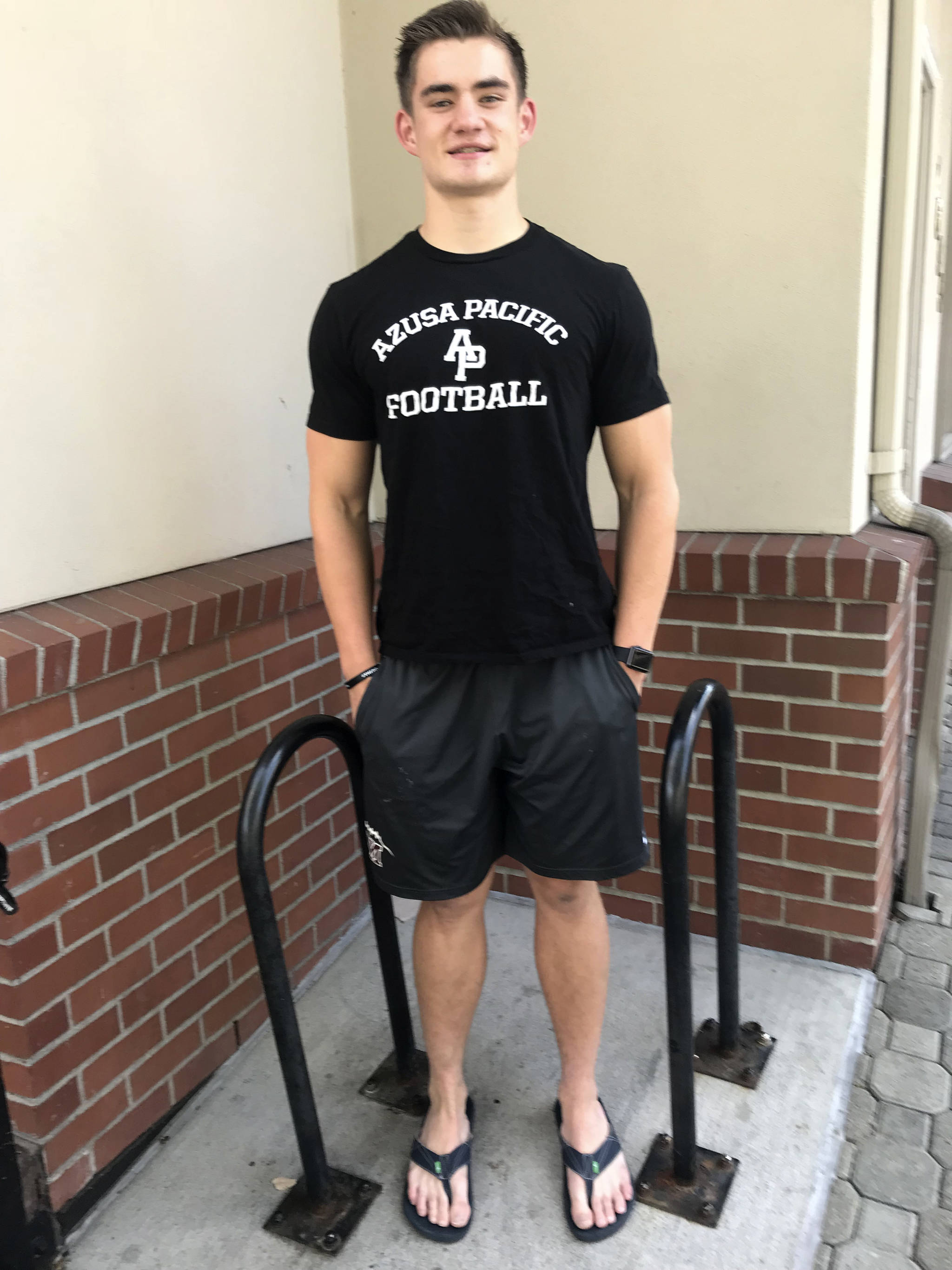Meticulous repetition is undoubtedly one of the most important qualities a long snapper can possess in his toolbox on a football field.
Mercer Island 2018 graduate Spencer Luce, who was the Islanders football team’s long snapper for the past three seasons, will continue his football career with the Azusa Pacific University Division-II football program this fall. Luce said he received some attention from a few Division-1 schools but knew Azusa Pacific University was the right place for him after taking his official visit.
“I wanted to go to a Christian school. That was the most important aspect for me in choosing a college. When I went there on my visit, it was just an environment like no other. Their atmosphere was not replaceable anywhere else,” Luce explained. “Azusa Pacific’s motto is building champions while pursuing championships. I like how they are building champions off the field. We (Azusa Pacific) have won three of the past five conference championships in one of the toughest D-2 conferences (Great Northwest Athletic Conference). Obviously we can win some games on the field but I want more is to win off the field, win in life and have my college football experience prepare me for what is ahead, which is a great education.”
The 6-foot, 3-inch, 218-pound Luce is planning on majoring in biology with a concentration in molecular biology. Luce is looking forward to August practice sessions in California to begin.
“The coaches are giving me an opportunity to compete. They’re not promising a starting spot or anything like that. I’m going down there to work. I want to play as much as I can but most importantly I want to help the team,” Luce said.
Luce’s journey to the collegiate football gridiron began during elementary school on Mercer Island.
“When I was a little kid, I would go to the high school and kick field goals with my dad. I started playing football so I could become a kicker. I kind of realized right away that I was a little too big to be a kicker, so I switched to offensive and defensive line. I didn’t exactly love it (being a lineman). What kept me playing was long snapping,” Luce said.
Luce was inspired to take up long snapping by one of the most beloved memories of his family.
“My grandfather played college football at a D-2 school in Northern Minnesota. He played offensive line and long snapper. He told me long snapping was a great opportunity,” Luce said. “Also, I was lucky enough to have my young life leader as Clint Gresham (former Seattle Seahawks long snapper) so I definitely had some great long snapping influences in my life.”
Luce said the long snapping position requires awareness and an unwavering dedication to accuracy.
“I believe its the most mentally tough position on the field. Perfection is the goal but you have to understand that you are never going to achieve it. I do try to hold myself to perfection every time but I do realize it’s not going to happen. As a long snapper, you can’t live in the past. Even if it’s your best snap or a terrible snap. I have to forget that last snap even if it was the best snap of my career. You always have to be looking forward,” Luce said.
Luce said snapping for field goals/point-after attempts and punts differ quite a bit.
“On a field goal you want it (the snap) to be a very catchable ball and on a punt you want it to be at the right hip of the punter every time. On field goals it has to be in same spot with the same speed every time. The kicker knows when I move the ball for the very first time, that is when he can take that first step. If my ball is a little slow, then that is going to mess up the timing. If the snap is a little high, the holder has to jump and it can throw off the kicker’s timing and can ultimately lead to a missed kick,” Luce said. “My relationship with the kicker needs to be very tight and we need to trust each other. On field goals, I need the laces to be up (facing away from the kicker) every time. Ideally that is 2.5 rotations on the ball. There is a lot more to this than people think. On punts, it’s a little different, the laces are a little less important for the punter because he has a little bit of extra time. He can take the ball and adjust the laces to how he wants it. The speed matters a lot more on a punt. It is 15 yards back and I want the ball to be there in a little less than .75 seconds. In the NFL, you see snappers get it back in .70 or less time.”


